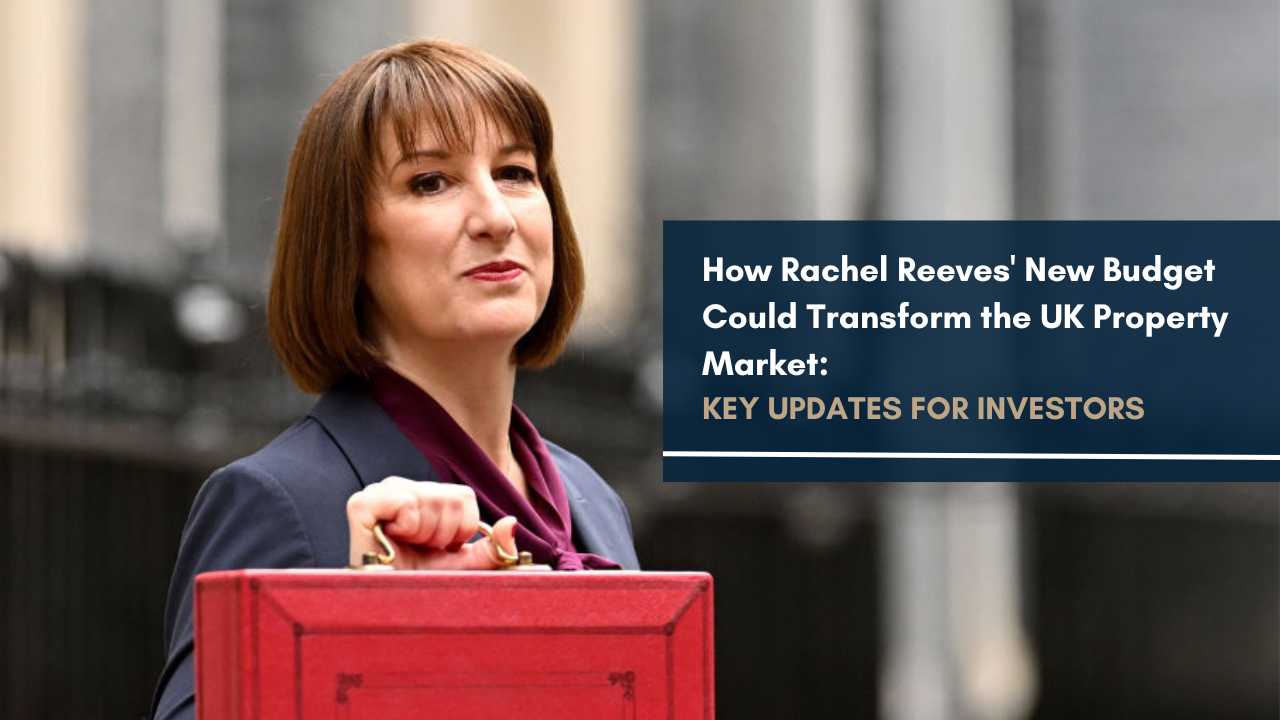If you’re considering investing in a buy-to-let property for the first time, one of the first decisions you’ll need to make is how to structure your purchase.
There are two choices. You can purchase a buy-to-let through a limited company or personal ownership.
Each has pros and cons, and even investors with established portfolios will regularly weigh up whether it’s better to switch from one to the other – especially with changing laws and uncertainty about future tax liability.
After all, increases in income and capital gains tax rates may push investors towards the limited company route. Meanwhile, any changes to corporation tax, the treatment of dividends, and allowable expenses could push investors the other way – back towards personally owned properties.
It’s a tough balancing act. In recent years, the law has changed (or is expected to) for all of these areas.
So what’s the best way to purchase and own a buy-to-let in 2024?
The truth is that it depends on your priorities and personal preferences. Although we are not solicitors or accountants, and the content in this article should not be taken as financial advice (always speak to a professional), we are a property investment company that works with investors across the UK each day, and this is one of the main points of discussion.
As such, we are comfortable providing an overview of both ownership routes so you can begin to weigh up the differences and make a decision.
Contents
- Personal Ownership Of A Buy-To-Let
- Limited Company Ownership Of A Buy-To-Let
- Limited Company vs Personal Ownership Comparison Table
- Summary
Personal Ownership Of A Buy-To-Let
Personal ownership of a buy-to-let is the most common structure.
Research from 2023 suggests that 83% of landlords in Manchester opt for personal ownership, while a nationwide government survey found it could be as high as 94%.
The reason lies in its simplicity. As long as you have the cash, or you have the deposit for a buy-to-let mortgage, you can find a property you like, purchase it, and put it on the rental market.
If you’re wondering how much money you might need to get started, read our guide: How Much Money Do I Need To Invest In Property?
So what do you need to know about personal ownership?
As the property will be owned in your name, you’ll receive all the rental income in a personal bank account upon payment by the tenant.
However, this additional income could push you into a higher income tax band, meaning profits could be taxed at a rate as high as 45%. You can see the latest tax rates on the government website.
You can offset your rental profits with allowable expenses, such as accountancy, legal, and letting agent fees, insurance costs, and maintenance and repair bills. You may also be eligible for the tax-free allowance of £1,000 on property income.
Unfortunately, though, the law has changed on expensing mortgage interest payments.
There is now a flat rate relief at 20% on mortgage interest. So, if you pay £10,000 in interest over a year, you can get mortgage interest tax relief of £2,000 (£10,000 * 20%).
If you’re a basic rate taxpayer, you’ll see little impact as the relief matches your income tax rate. But most individual landlords will fall into the higher or additional rate bands, and will therefore see higher bills as the relief doesn’t fully cover their tax rate (40% for higher rate, 45% for additional rate).
Furthermore, if you decide to sell the property and it has increased in value, you will be liable to pay capital gains tax on the profits. Again, there is an annual tax-free allowance for capital gains, but it’s quite low (£3,000) given how much a property’s value can appreciate over a few years.
Any gains on residential property over the allowance are subject to a rate of 18%-28%, depending on whether you’re a basic, higher or additional-rate taxpayer.
Limited Company Ownership Of A Buy-To-Let
Anyone can set up and register a limited company through Companies House.
There’s a bit of paperwork involved, but everything can be completed online for a fee of just £50. The government even has a handy step-by-step guide to follow.
Once the company is set up and funded, you can use it to purchase a buy-to-let.
In this structure, the company owns the property, not you personally. You act as a director and shareholder of the company, which means any income generated from the property is paid to the company rather than directly to you.
This difference can result in quite significant tax efficiencies.
That’s because companies pay corporation tax on their profits. As of the 2024/25 tax year, the corporation tax rate is 25% for companies with profits over £250,000, and a lower rate of 19% for profits under £50,000. A marginal rate tax relief provides a gradual increase between the two rates for companies with profits between £50,000 and £250,000.
Also, companies can deduct mortgage interest payments as a business expense in full – rather than being capped at 20%. So, compared to a landlord who owns a property personally and falls into the higher or additional-rate tax brackets, incorporation can offer serious tax benefits.
While this all seems great, purchasing a buy-to-let through a company is not without issues.
As the rental income is paid into the company’s bank account, there is a question of how shareholders (i.e. you) extract the profits.
The most common way to do this is by paying yourself dividends, which are taxed like any other form of personal income. This means, effectively, you are taxed twice – once via the company and again personally.
Fortunately, dividends are taxed at lower rates than income tax, but the difference between the rates has been squeezed in recent years. As has the tax-free allowance on dividends, which stood at £5,000 in 2016 but has now fallen to just £500 as of April 2024. For the 2024/25 tax year, the dividend tax rates are:
- 8.75% for basic-rate taxpayers
- 33.75% for higher-rate taxpayers
- 39.35% for additional rate taxpayers
Even though the savings aren’t as juicy as they once were, there are more benefits, such as much greater flexibility in tax planning, that still act as a major draw for landlords.
Limited Company vs Personal Ownership Comparison Table
To more easily compare the differences between the two ownership structures, we’ve produced the table below. We’ve also included some advice on who each structure might best suit.
| Feature | Limited Company Ownership | Personal Ownership |
|---|---|---|
| Main Features | Property is owned by the company; rental income is taxed at Corporation Tax rates. | Property is owned in your personal name; rental income taxed as personal income. |
| Pros | – Lower Corporation Tax on profits. – Full mortgage interest relief. – Better for portfolio growth and reinvestment. |
– Simpler structure to set up and manage. – Direct access to rental income. – Lower mortgage rates typically available. |
| Cons | – Higher mortgage rates for limited companies. – Double taxation on profits (Corporation Tax + Dividend Tax). – Higher administrative burden. |
– Higher personal tax rates on rental income (up to 45%). – No full mortgage interest relief. – Higher Capital Gains Tax (CGT) on property sales. |
| Tax on Profits | – Corporation Tax: 19%-25% depending on profit levels. – Additional tax on dividends when profits are extracted: 8.75%-39.35%. |
– Income Tax: 20%, 40%, or 45% depending on your tax band. – Capital Gains Tax: 18% (basic rate) or 28% (higher rate). |
| Administration Requirements | – Annual company accounts and tax returns. – Company formation and maintenance costs. – Requires accounting expertise. |
– No additional administration beyond personal tax return. – No company filings or accounts needed. |
| Who Does It Suit? | – Higher-rate taxpayers. – Investors with multiple properties or large portfolios. – Long-term investors planning to grow their property business. |
– Basic-rate taxpayers. – Small portfolio or single-property investors. – Those who want direct, simpler ownership with minimal administrative effort. |
| Other Considerations | – Stamp Duty Land Tax (SDLT) is payable when purchasing a property through a company. – Transferring properties from personal to company ownership can trigger SDLT and CGT. – Inheritance Tax (IHT) planning may be easier as shares in the company can be passed on. |
– SDLT payable on purchases, but no need to transfer property. – Inheritance Tax (IHT) applies directly to the property value. – Transferring to a limited company can trigger both SDLT and CGT, which can be costly. |
Summary
Deciding between setting up a limited company and personal ownership is not as clear-cut as you might think.
The vast majority of landlords have small portfolios (the survey linked earlier shows almost half own just one property). As such, they may prefer direct, admin-free access to their profits over tax benefits.
As we said in the introduction, it comes down to your priorities, but the size of your portfolio and future growth plans can influence things.
If you’re interested in discussing this further, and you want to start your search for a buy-to-let property, why not get in touch with our team?
During a free consultation, we’ll review your situation, plans, and long-term goals to advise on the best approach to property investment – including ownership structures, investment strategies, and even suitable properties from our portfolios.
Get started by filling out the form below, or you can book a call at a time that suits you.
































